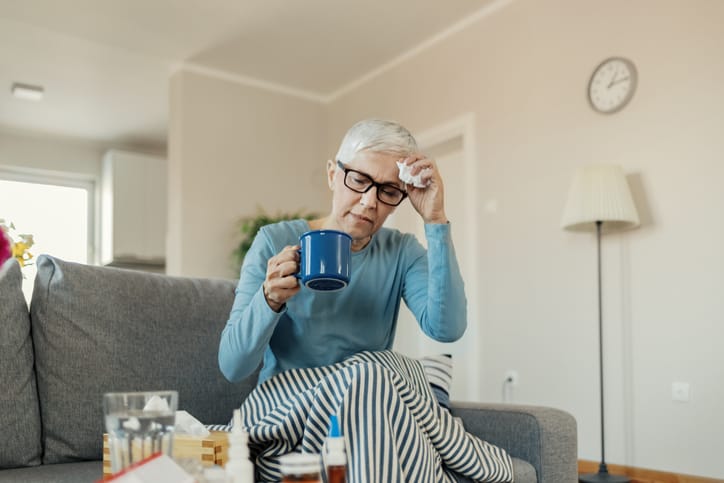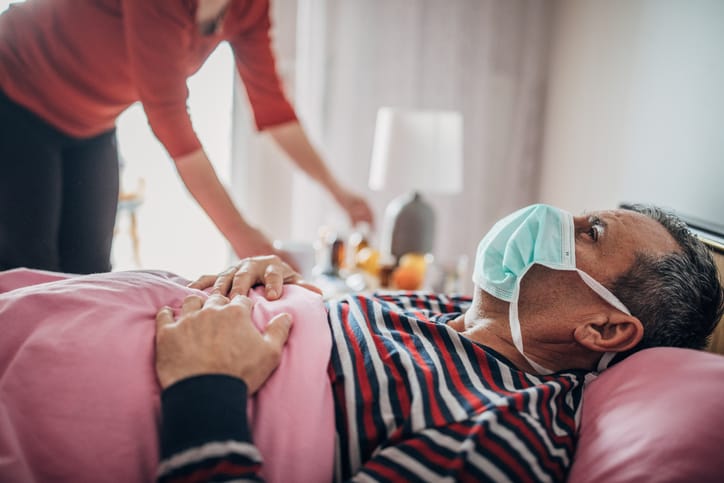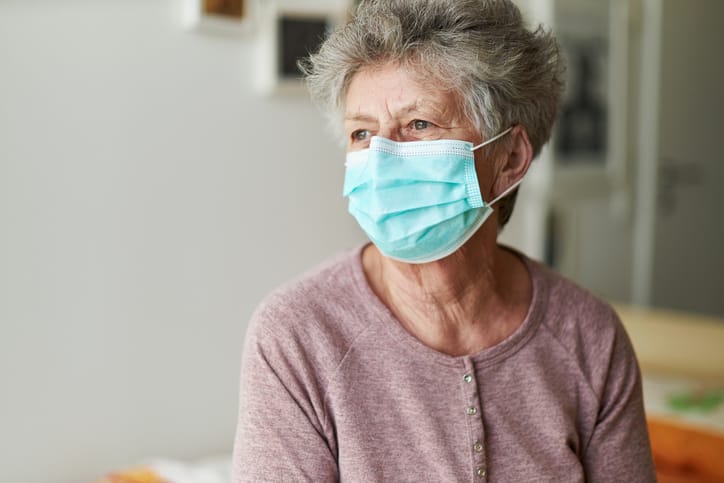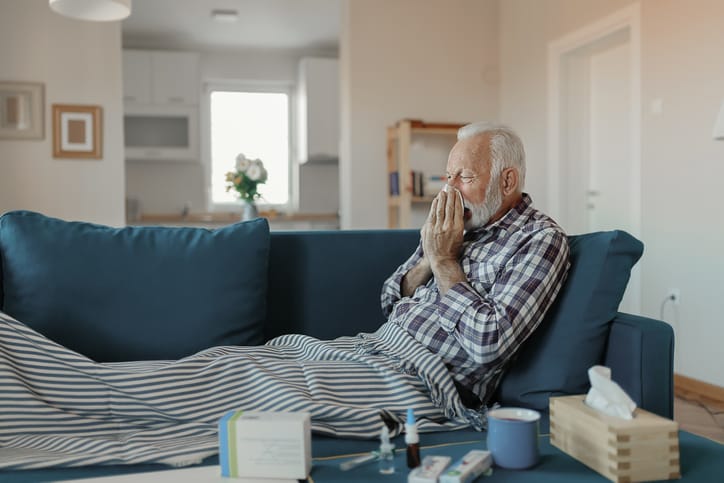While the world continues to deal with the effects of the novel coronavirus (COVID-19), flu season is nearly in full swing. The flu affects millions of Americans annually, and given similar symptoms, COVID-19 and the flu are difficult to tell apart. In an effort to help keep you and your loved ones safe, the team at Jewish Family Home Care are glad to provide information on the differences between COVID-19 and the flu as well as how to reduce the likelihood of transmission.
Symptoms – Coronavirus Versus Flu

When you are feeling ill, you might wonder if you are experiencing symptoms of the flu or the coronavirus. Since both illnesses are a result of viral infections affecting the respiratory tract, they can be spread via direct contact of airborne or surface droplets containing the virus, and both can result in serious complications.
Flu symptoms most often occur suddenly without warning, while COVID-19 symptoms can occur up to 14 days after exposure. Fever and cough are common symptoms of both the coronavirus and the flu. While headaches, aches, pains, and fatigue occur in some cases of coronavirus, they are often common symptoms of the flu. Sore throats, stuffy noses, and diarrhea are sometimes symptoms of the flu, while they rarely occur when infected with COVID-19.
Shortness of breath occurs in serious cases of coronavirus, though not with the flu. Loss of taste or smell is often a symptom of COVID-19.
COVID-19 and the FLU – Effects

The flu is the result of contagious influenza viruses that can infect the nose, throat, and even the lungs. Ranging from mild to severe cases, the flu can lead to viral pneumonia, and even death in some situations. For the flu, a vaccine is available, and those who receive the vaccine are less prone to infection. If infected, those who have received the flu vaccine experience a shorter duration with less severe symptoms.
COVID-19 is a strain of the coronavirus first identified in 2019, and the cause of the coronavirus pandemic. There are numerous types of coronaviruses, causing a number of illnesses, mild to severe. Specifically, COVID-19 is a highly contagious virus that infects the lungs.
Some infected with coronavirus only experience minor symptoms, while others can develop severe symptoms that lead to conditions potentially including lung damage, kidney failure, acute respiratory distress syndrome, and even death. A vaccine is in the developmental stages, and current treatment protocols are dependent on the severity of coronavirus symptoms.
The Flu and Coronavirus – Who is Most at Risk?
The Centers for Disease Control and Prevention (CDC) label adults 65 and older as well as those with chronic medical conditions (heart disease, diabetes, asthma, etc.) to be most at risk for the flu and flu-related complications.
Risk factors for COVID-19 also include older adults and those with chronic health conditions to be most at risk for severe symptoms. The CDC also includes high risk assessments for pregnant individuals as well as those living in poverty or crowded conditions and prescribers to certain medications.
Preventing the Spread

Getting your annual flu vaccine is the best approach to avoiding the seasonal flu. Prevention of COVID-19 is more challenging with no vaccine yet available. Even so, these strategies can help prevent the transmission of the influenza virus, the coronavirus, and other respiratory illnesses:
- Avoid those who are confirmed ill or at high risk of exposure
- Get any necessary medical care, then stay home if ill
- Regularly clean and disinfect frequently touched objects and surfaces using a household detergent and a disinfectant
- Use your elbow or a tissue to cover your mouth and nose when sneezing or coughing
- Wash your hands often with soap and water (20 second minimum) or use hand sanitizer (at least 60 percent alcohol) when soap and water are not readily available
- If you are in the high-risk categories for infection, stay safer at home. Wear a mask when you go out and maintain physical distancing of six feet
If You Think You or Your Loved One Has Been Exposed to COVID-19
If you suspect you or your loved one has been exposed to COVID-19 or is having symptoms, contact your physician or urgent care center as soon as possible for guidance. Should you or your loved one experience emergency warning signs, call 911 and seek emergency care right away.
Take Care of Your Senior Loved One
Families can count on the team at Jewish Family Home Care, provider of home care in Coral Springs and the surrounding area, to help when senior loved ones require caregiving assistance. Please contact us to learn more about how Jewish Family Home Care can help you or your loved ones with quality non-medical home care services.
